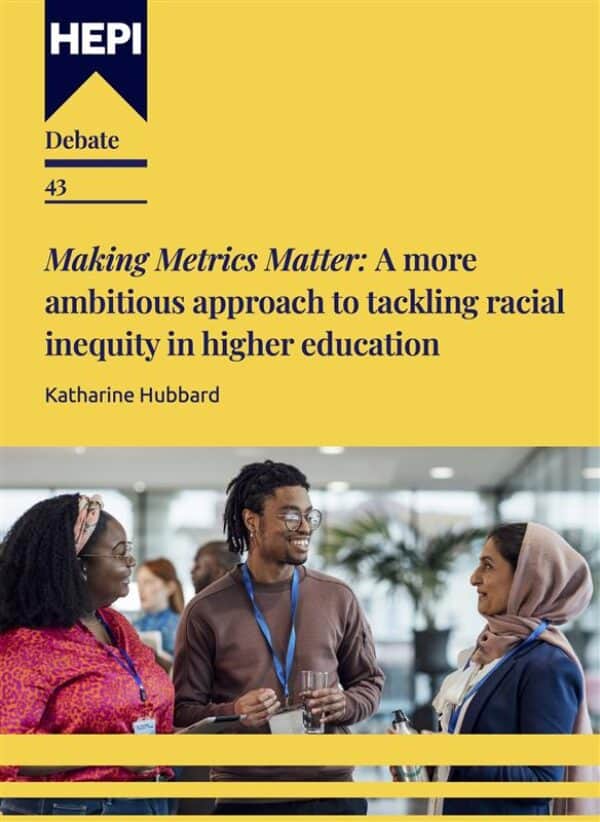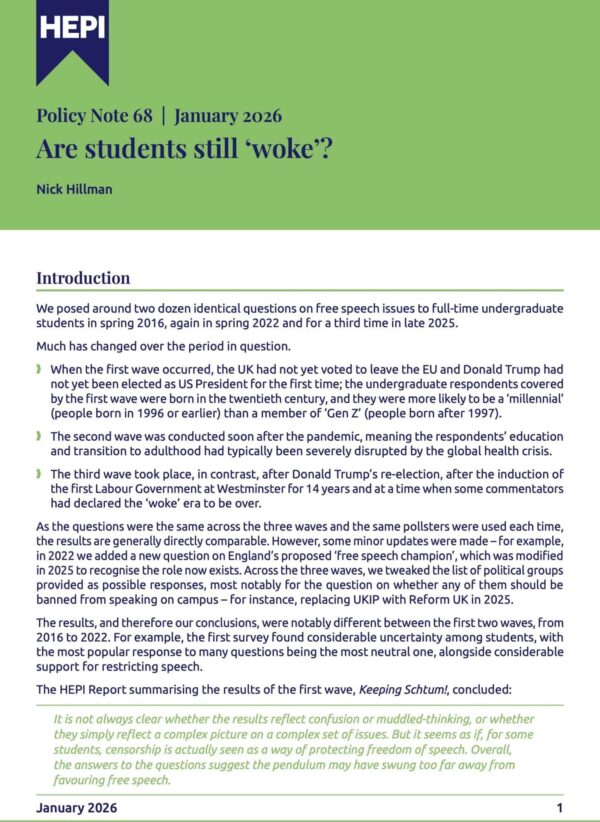Speech is Protected, But Is It This Simple? LSE Research Delves Into Student Experiences of Free Speech
This blog was kindly authored by Lauren Amdor, who graduated from LSE with a BSc in History and International Relations and has recently finished her post as the Activities and Communities Sabbatical Officer at LSE’s Students’ Union.
The 2023 Higher Education (HE) Freedom of Speech Act (the Act) has long been one to watch, especially after Labour paused its implementation last July. As an LSE Students’ Union (LSESU) Sabbatical Officer, the Act raised broader questions around how students’ education would be affected, which I explored in the research project Power to Speak and subsequent focus groups.
With 592 responses across LSE Departments, modes of study and domiciles, students were asked nine quantitative questions in the Power to Speak survey measured on a Likert scale which found that:
- One-in-four respondents did not feel comfortable speaking up in class.
- 75% of respondents agreed that the teacher defines what speech is accepted in the classroom.
- 45% of respondents felt ill-equipped to encounter/respond to ‘damaging speech’ protected by free speech laws.
- Half of the respondents agreed that campus lacked opportunities for groups with opposing views to engage in dialogue.
The tenth qualitative question asked students what they thought ‘promoting freedom of speech should look like’, given the upcoming duty on universities to promote this under the Act.
Student responses were coded into five thematic categories:
- A safe environment to express or not express views (26.8%)
- Freedom to express views without retaliation or consequences (23.6%)
- Promoting and welcoming free speech (22.2%)
- Students’ rights to protest (15.3%)
- A zero tolerance to hate speech and violence (12.1%)
Two key points emerged, which universities and students’ unions should pay particular attention to:
- Why did students report feeling unable to express their views?
- Where do students think the line is with free (but offensive) speech, and why?
Institutional ramifications, not strictly legal ones, recurred throughout responses. This included fearing academic repercussions for articulating a converging perspective to their teachers, visa revocation and the social consequences of adopting minority viewpoints including being ‘judged’, ‘ostracised’ or ‘persecuted’. The most cited fear, however, was disciplinary action against students by the University which was also central in the Right to Protest theme. Here, students specifically referenced disciplinaries against those protesting for Palestine across higher education institutions. These various fears contributed to what students considered as ‘a chilling effect on free speech’ despite the high legal threshold for unlawful speech.
Inadequate tools and support systems to engage with conflicting perspectives was a significant issue. Students highlighted difficulties navigating emotionally charged topics, especially as university was the first time many had encountered diametrically opposing views. Shying away from these discussions was partly down to ‘the fear of the first time’ and accidentally causing offense, particularly appearing Islamophobic or Antisemitic. Limited experience in having these conversations exacerbated the individual burden felt and reported by students, as universities had seemingly not supported necessary skill development. Fluctuating stress across the academic year also elevated anxiety around difficult conversations or debates, further reducing the capacity to cope adequately. The demographic breakdown of Question 27 of the National Student Survey (NSS) suggested that minority-group students felt less free to express their views during their studies. A focus group discussing Faith in the Classroom further explored this trend, finding that practising students wanted to avoid dealing with possible arguments around personal beliefs. Departmental colleagues additionally identified how cultural norms regarding debate contributed to an uneven baseline from which students engage (discussed in the case of Chinese international students). Universities should be aware that certain student groups feel less equipped to navigate free speech and should therefore take a tailored approach to upholding it.
Although academic freedom laws ensure academic staff can express their views as they choose, this was considered a barrier to students participating in debate. Students consistently maintained that teachers should not necessarily ‘engineer neutrality for the sake of it’ but should be trained to foster a culture of academic disagreement without discrimination and manage conflicting views constructively and skilfully. Building trust and a positive rapport between students and academics was significant in empowering students to contest presented arguments and approach academic staff to discuss related issues.
Students expressed concern around speech which might harm and negatively impact minority student groups, and how a hostile campus environment impacted their overall education. How potentially harmful (but legal) views were presented was of equal concern, with most students accepting such speech if it was respectful and considerate to diverse and underrepresented experiences. This is effectively the debate around balancing free speech rights with the right to privacy and protection from discrimination under the European Commission of Human Rights. While institutions consult the OfS guidance on interpreting the Act and related questions, institutions also contend with the apparent lack of clarity amongst students, reiterated by consistent calls to draw a clear line and articulate ‘what free speech is not’.
Recommendations Arising from the Research Findings
- Clarify how free speech, rights against discrimination and to privacy are practically balanced, and what speech or action might result in institutional disciplinaries, in an understandable way for students.
- Create a baseline level of soft skills for respectful disagreement and debate as part of a university education, regardless of a student’s course of study.
- Facilitate dialogue spaces ‘across religious, ethnic and ideological boundaries’, to counter polarisation, model respectful discussion of ‘controversial issues’ and assist students with this responsibility.
- Equip teachers to facilitate debate across challenging topics while upholding Academic Freedom.
Where Do Students’ Unions Sit?
Students’ Unions (SU) are uniquely positioned to support students and institutions with the realities of the Act. As a student-led organisation, there is a clear opportunity to create student-led dialogue spaces for interested students, as the LSESU Campus Relations Group has done. Working with individual student societies additionally offers a chance to carve out pockets of safety for those encountering especially difficult perspectives at university. As a key liaison between institutions and students, SUs have an explanatory role to ensure students understand their rights related to the Act and university policy. And finally, as an acknowledged student voice mechanism, SUs can lobby their institutions on issues pertaining to students’ free speech or work with larger organising bodies (e.g. the National Union of Students) to lead national policy change.







Comments
Add comment